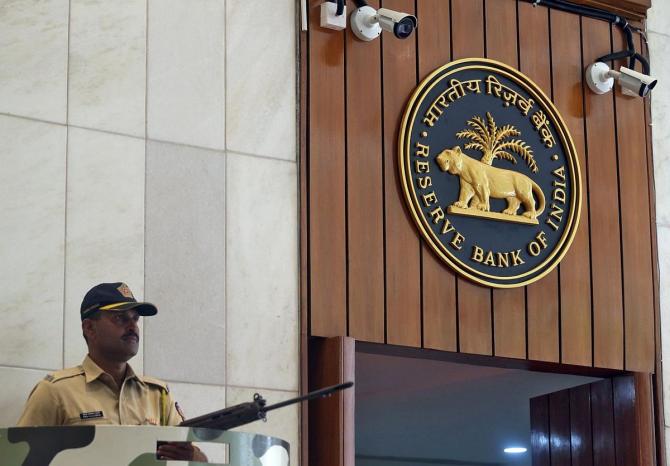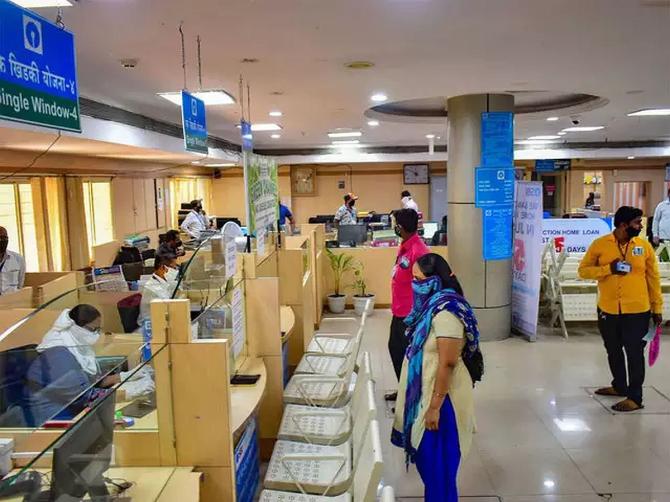Isn't it time to review the 'fit and proper' criteria for banking licence, particularly with reference to individuals applying for it, asks Tamal Bandyopadhyay?

On a cricket field, when a fielder drops a catch, the spectators groan. On a football ground, when a striker misses a penalty kick, the stadium reacts the same way.
But, in the last week of November, when the Reserve Bank of India's new guidelines on the ownership and corporate structure of private sector banks quietly dropped its internal working group's recommendation to permit large corporate houses to promote banks, there was a collective sigh of relief.
To use cricket terminology, this recommendation was not a sitter. In fact, it was laced with many caveats.
The working group had said large corporations 'may be permitted' to set up banks but only after necessary amendments to the Banking Regulations Act, 1949 to deal with connected lending and exposures between the banks and other financial and non-financial group entities as also strengthening the RBI's supervisory mechanism.
The working group, set up in June 2020, had made 33 recommendations.
The RBI has accepted 21 of them, with minor modifications in some cases.
The rest, including the entry of corporate and large non-banking financial companies into banking, are under examination. No one is missing them, at least for now.
Out of the 21 recommendations, the most important ones are related to the promoter's holding in a bank and the timeframe for paring it -- a contentious issue that prompted one private bank to move court in the recent past.
Now, the promoter of a bank can have 26 per cent stake, equal to voting rights, forever.
Even those promoters who have already diluted their holdings to below 26 per cent can raise it.
A welcome move as more skin in the game would make a promoter responsible and encourage care for governance.
A promoter can hold at least 40 per cent stake for the first five years; by the 15th year, it can be pared to 26 per cent.
Of course, the holding can even drop below 26 per cent after the initial lock-in period of five years.
All intermediate sub-targets between five and 15 years have been removed but the promoters would need to present to the banking regulator a roadmap for diluting stake before the bank is set up.
Who will get the benefit of this new norm? Uday Kotak would not need to pare his stake in Kotak Mahindra Bank Ltd; the Hindujas can raise their stake in IndusInd Bank Ltd; and mortgage lender Housing Development Finance Corporation can raise its stake in India's most valued bank, HDFC Bank Ltd.
At least three promoters of small finance banks (SFBs), too, will get the benefit.
The new norms cap the non-promoter shareholding at 10 per cent for an individual and a non-financial institution; but financial institutions, multilateral agencies and public sector undertakings can have up to 15 per cent.

The minimum capital requirement for universal banks has been raised to Rs 1,000 crore (Rs 10 billion) from Rs 500 crore (Rs 5 billion) and that of SFBs, to Rs 300 crore (Rs 3 billion) from Rs 100 crore (Rs 1 billion).
If an urban cooperative bank wants to transform itself into an SFB -- which the RBI is encouraging such banks to do -- it will need to bring in Rs 150 crore (Rs 1.5 billion) capital, but in five years the capital must be doubled.
These new norms are applicable only to those who will seek licence now -- not the ones who had already put in their applications.
When it comes to the corporate structure of a bank, the RBI would prefer the non-operative financial holding company (NOFHC) structure for all new universal banks where the promoters have other companies under their fold.
Existing banks, which have been following the NOFHC structure, could be allowed to exit from such a structure if they do not have other business entities within the group. Bandhan Bank Ltd falls in this category.
The new SFBs would require to be listed within eight years from the date of commencement of operations, but for the universal banks, the timeframe for listing is six years.
The new norms also say that whenever a new licensing guideline is issued, if new rules are more relaxed, the incumbent entities should get the benefit immediately.
But if the new rules are tougher, the legacy banks should be given a transition path to conform to the new norms, and this will be charted out in consultation with them.
Most importantly, as the licensing is now on-tap, there should be a comprehensive document on the licensing and ownership guidelines, making all norms equal for legacy as well as the new banks.
All these are fine, but I have a quibble with the observation that the existing criteria to assess the 'fit and proper' status of promoters are appropriate and may be continued.
Doesn't the regulator regret giving banking licences to Ramesh Gelli and Rana Kapoor?
Isn't it time to review the 'fit and proper' criteria for the banking licence, particularly with reference to the individuals applying for it?
Ditto for choosing the boss of a bank -- regardless of whether that person is a promoter or a professional.
At the least, psychometric tests should be mandatory to gauge the personality traits and aptitude of prospective CEOs.
While there is no change in the 'fit and proper' criteria, the call for a monitoring mechanism to ensure that control of a bank doesn't fall in the hands of persons who are not found to be fit and proper is welcome.
Even though this was not within the remit of the working group, recent developments in some banks in India put the spotlight on the role of the board of banks, the CEO, corporate governance and conflict of interest.
Let's admit that the regulator hasn't done well in keeping a tab on how bank boards function.
The Banking Regulation Act empowers the RBI to supersede the board of directors of banks -- 'in public interest or for preventing the affairs of any banking company being conducted in a manner detrimental to the interest of the depositors'.
But this is only for a period not exceeding six months. The supersession of the board can be extended, but not beyond 12 months.
The RBI's prior approval is a must for the appointment and reappointment of the CEO; the central bank could seek the CEO's removal also.
But apart from solvency, the Act doesn't specify what qualities a CEO should possess.
It does point out the disqualifying characteristics, though.
The CEO should be solvent, should not have suspended payment to creditors and must not be convicted by a criminal court for an offence involving moral turpitude.
These are not enough. Closer RBI scrutiny is a must for a CEO's appointment.
Right now, the approach seems to be merely ticking the box.
Tamal Bandyopadhyay is a consulting editor with Business Standard, is an author and senior adviser to Jana Small Finance Bank Ltd
Feature Presentation: Rajesh Alva/Rediff.com











